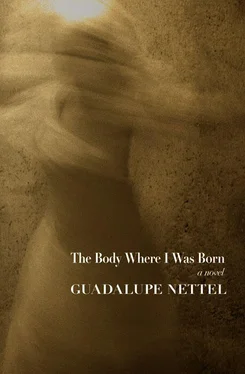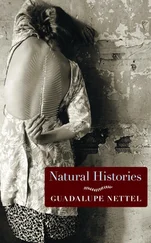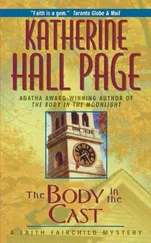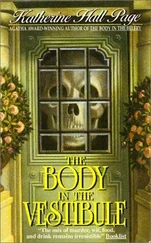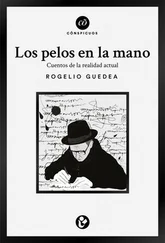Another of my family’s self-determining policies was to give us a sexual education free of taboos. This was mostly carried out through an open and occasionally excessively candid dialogue on the subject, but also through allegorical tales. On many nights, or in the middle of the afternoon, if the opportunity presented itself, my mother would tell me a story of her own extraordinary invention. She would explain (at least) that it was a fictional tale with educational purposes. Her very peculiar version of “Sleeping Beauty” went something like this:
One cold afternoon in winter, the queen summoned the royal physician in alarm because it had been more than two months since she had menstruated. The doctor, astonished at the naivety of his sovereign, said to her: “Her majesty must know by now that if a woman, noble or common, does not bleed for more than thirty days in a row, it is most likely that she is with child.” That afternoon, the king and the queen announced the news to their subjects: very soon there would be an heir to the throne. And so it was, that in less than nine months, a beautiful little princess named Aurora was born.
What happened next: the poisoned spindle, the princess’s slumber, but all the rest wasn’t so important after a start like that. The story left some things unexplained. It wasn’t long before it began to seem incomplete to me, and therefore troubling. What was a period, exactly? Why could a queen become pregnant? What did the womanly bleeding have to do with making a baby? The story didn’t clear up any of that. My parents didn’t want to lie to us, but fighting the tradition of mystery in which they had been educated turned out to be not so easy. To make their undertaking easier, they gave us a collection of books that explained the sexual anatomy of men and women in detail, as well as intercourse and the potential results thereof. But I didn’t even have enough time to grasp the subject of reproduction before my parents hastened to explain that apart from that purpose genitals had other uses, recreational ones, like sex. Even if children were indeed products of coitus, the objective of such an encounter was not to engender new lives, at least not in most cases.
Instead of clarifying things, my parents made them increasingly confusing and distressing.
“So,” I said, trying to recap on our way to school, from the backseat of the car, “why do people have sex?”
“To feel pleasure,” the two adults seated in the front responded in unison. With my brother absorbed in his contemplation of the cars on the road, I attacked again, “But what does that mean?”
“Something that we like very much, like dancing or eating chocolate.”
Eating chocolate! Hearing an answer like that, it’s not unlikely a girl would want to lock herself that very morning in the school bathroom with the first boy she sees. Why didn’t it occur to anyone to tell me, Dr. Sazlavski, that people have sex because they love each other and it’s another way for them to show it? That might have been a bit more exact and less troubling, don’t you think? I suppose that telling us all this made them feel more responsible and evolved than their own parents, and the satisfaction kept them from seeing the anxiety they were generating in my mind. I don’t want to say they were wrong, but I feel that our “education” was premature (I was six) and a little overwhelming. On the other hand, my brother, who was maybe three years old at the time, was able to float above it all like a person who boards a boat twenty minutes before a tsunami hits and with innocent serenity lets the wave pass below him.
Unlike the secret of Christmas, which my brother and I did keep, I decided that nobody in my midst would be left uninformed about the business of reproduction. I even started a mural newspaper with a first edition dedicated solely to the subject. The editorial team was made up of three sisters, last name Rinaldi, whose parents were even more liberal than mine. The headmistress, a very friendly and rather lenient woman, let us put our mural newspaper up for several days. However, she was soon forced to shut us down due to complaints from more conservative parents who threatened to take their children out of the school. Other families came to our defense. It was the first time I heard talk about freedom of speech, a chimera as obsolete in my country as Quetzalcoatl, the feathered serpent.
The Rinaldi sisters had always been at my school, but we had never been in the same class. We became friends at one of the end-of-year gatherings that were held at a country house. Our parents felt an immediate kinship and decided to get together on weekends. We all traveled to Cuernavaca and Valle de Bravo. The Rinaldi girls were blond, freckled, and gifted with a surprising sense of humor. The oldest was Irene, who was in my grade but in a different group. She spent her recesses clandestinely, absorbed in her own games on the roof of the school, far from the hustle and bustle of the yard. Like me, she wasn’t afraid of heights. We quickly became good friends. Her family lived on the side of the Ajusco hill, which in those days was considered outside the city. Still under construction, the house had an American kitchen, a sculpting studio where her mother worked, a dining room, and two huge lofts situated face-to-face, which served as bedrooms with neither curtains nor doors. If that wasn’t enough, Irene’s parents were in the habit of giving in to their sexual impulses right in front of their daughters, with no regard to what part of the house they were in. One time, I saw them going at it in the living room while I was supposed to be watching cartoons with the girls. The three sisters remained engrossed by the TV, acting as if nothing was going on. I, on the other hand, kept still as stone, intently watching the spectacle. It was a practical demonstration of the theory I had been hearing about for months. And yet, it was difficult to associate what I was seeing with my own eyes with the books on anatomy and reproduction. I wondered if, in this moment, Irene’s parents were making a fourth sister, or if it was just a way for them to have a good time. But how could someone “have a good time” in such a strange way? Their movements looked more like hand-to-hand combat, like my brother’s and mine when we fought over toys. Grunting, screaming, biting, Judo holds — how was this like eating chocolate? The scene was so violent that Max, the family’s grouchy Pekingese with very sharp teeth, came over to try and stop it, pulling at the shirt of Gonzalo Rinaldi as he merrily mounted his wife from behind. Feeling the nip in his back, Irene’s dad grimaced in pain and with a kick launched the animal into the air. Andrea, the middle daughter, burst out laughing and I couldn’t help but do the same. Then the other two sisters joined in the nervous laughter we were unable to contain. Where are those girls today? Did they honorably survive the seventies? I hope so, with all my heart. But it wouldn’t surprise me to learn that one of them is now institutionalized, or that one had turned into a prude. It is said that the extremely conservative turn taken by the generation to which I belong is due largely in part to the emergence of AIDS; I am convinced that our attitude is very much a reaction to the highly experimental way our parents confronted adulthood.
As I said before, my family lived in a residential complex of almost twenty-five buildings. Despite that, it was a fun place to grow up. Each building had a green area where the social kids would get together in the afternoons to play, while the antisocial ones would watch from a distance. There was also a huge esplanade where kids could rollerskate and ride bikes, and a place with swings and metal climbing sets. In the days of the patch, I liked to climb by myself up the ladder of the seven-foot slide, which I would usually slide down. But more than once, I fell to the ground from the ladder instead of sliding down the silver slope. I was an intrepid little girl and the risks heightened by my condition only made these games all the more thrilling. I still have a scar over my right temple from a see-saw that refused to stop for me as I went by on my reckless way. I sustained a similar injury from a swing that slammed into my head at top speed, hitting just below my left earlobe.
Читать дальше
